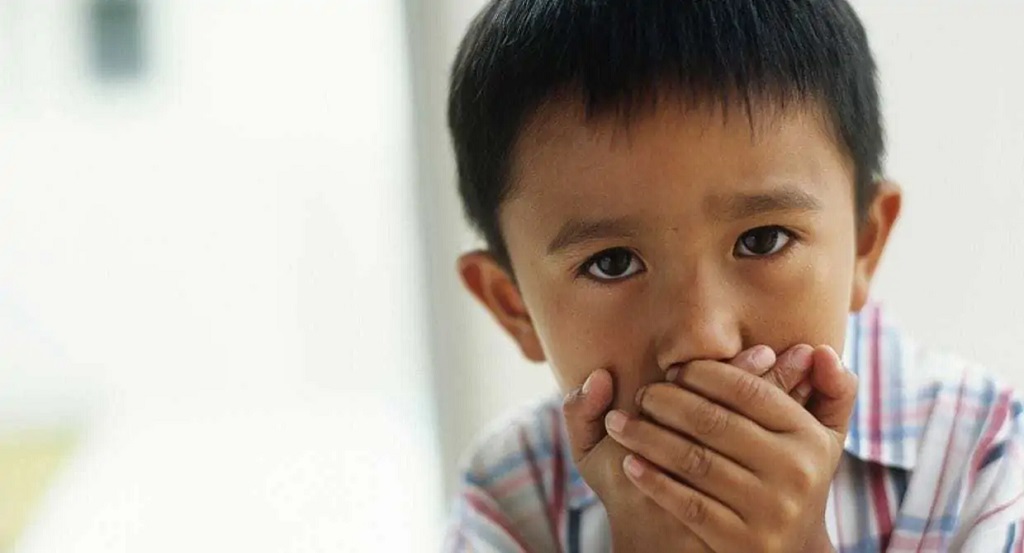
18 Feb How to stop a child from saying bad words
Children are like sponges, absorbing everything around them, including language. As they navigate the world, it’s not uncommon for them to pick up words and phrases that might be inappropriate. As parents, it’s our responsibility to guide them towards respectful communication. In this article, we’ll explore effective strategies to prevent children from using bad words and answer the question: Is “stupid” a bad word?
A Guide on How to Stop Your Child from Using Bad Words

Understanding the Impact of Words
Before delving into strategies, it’s crucial to recognize the power of words and their impact on both children and those around them. Children often use words without fully understanding their implications, and as parents, we can shape their language choices by fostering an environment that encourages positive communication.
Bad to Be “Stupid”?
First of all, it must be known that it is a “stupid” bad word. While it might not be classified as a profanity, it can be hurtful and disrespectful. Teaching children that using such language is unkind and can hurt others’ feelings is an essential step in guiding them towards more considerate communication.
Strategies to Stop Your Child from Using Bad Words
Model Positive Language
Children learn by example, and parents play a crucial role in shaping their language choices. Be mindful of your own language and strive to use positive and respectful words in your everyday communication. This will create a positive linguistic environment at home.
Open Communication Channels
Encourage your child to express themselves openly without resorting to inappropriate language. Create a safe space where they feel comfortable discussing their feelings, frustrations, or concerns without the need for offensive language.
Explain the Impact of Words
Help your child understand the impact of their words on others. Explain that certain words, like “stupid,” can be hurtful and make people feel sad or angry. Encourage empathy by asking them how they would feel if someone used such words towards them.
Set Clear Boundaries
Establish clear rules about the use of language at home. Let your child know that using disrespectful or inappropriate words is not acceptable. Be consistent in enforcing these rules and implement appropriate consequences if necessary.
Offer Alternatives
Teach your child alternative ways to express themselves when they are upset or frustrated. Encourage them to use words that convey their feelings without resorting to name-calling or offensive language.
Monitor Media Consumption
Be aware of the media your child is exposed to, including TV shows, movies, and video games. Some content may contain inappropriate language that can influence your child’s vocabulary. Monitor and limit their exposure to such content..
FAQs
How can I approach my child about their use of bad words without triggering a defensive reaction?
When addressing your child’s use of inappropriate language, it’s crucial to maintain an open and non-confrontational communication style. Start by expressing your concern calmly and avoiding accusatory language. Use “I” statements to convey your feelings and explain the impact of their words on others. Encourage a dialogue by asking them why they chose those words and be ready to listen without judgment. Creating an atmosphere of understanding will make it more likely for your child to be receptive to your guidance.
My child has started experimenting with bad words; is this a normal phase of development, and when should I become concerned?
It’s not uncommon for children to experiment with language, including using bad words, as they navigate their social environment. In many cases, it is a phase of curiosity and testing boundaries. However, it’s essential to monitor the frequency and context of such language. If it becomes a consistent pattern, especially after the age when they should grasp the consequences of their words, it may be time for intervention. Consistent communication, setting clear boundaries, and addressing the root causes of their language choices can help guide them towards more respectful communication.
Final Thought
In the journey of parenthood, guiding children towards respectful communication is a continuous process. By modeling positive language, fostering open communication, and setting clear boundaries, you can help your child develop a vocabulary that promotes kindness and understanding. While discussing business ideas, it’s crucial to emphasize that, just like teaching children the impact of their words, entrepreneurs should focus on concepts that not only thrive economically but also build positive connections within the community.
